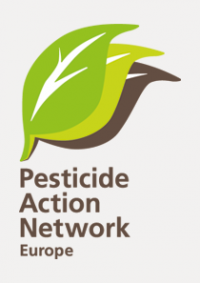Briefings
‘Food and feed safety omnibus’ threatens EU pesticide rules
The Commission’s proposal for a “food and feed safety omnibus” seriously weakens the EU's current pesticide rules, which aim to protect health and the environment.
‘Food and feed safety omnibus’ threatens pesticide rules
The European Commission’s leaked draft proposal for the ‘food and feed safety omnibus’ proposes significant weakening of the approval and authorisation system for active substances and pesticide products in place under the current Pesticide Regulation (1107/2009). The most prominent and alarming proposal is the shift toward unlimited approvals and authorisations, except in narrowly defined cases.
Will the Commission’s plan to fast-track biocontrol miss the mark for pesticide reductions?
The European Commission’s Vision for Agriculture and Food proposes easing market access for biological control substances (biocontrol). PAN Europe welcomes more capacity for biocontrol risk assessment and optimised approval procedures to foster their availability. Biocontrol is an important alternative enabling the phasing out of harmful pesticides.
Comments on the call for evidence for simplification of the food and feed safety legislation
Pesticide Action Network Europe (PAN Europe) welcomes the opportunity to contribute to the call for evidence for the “Food and feed safety - simplification omnibus”’.
CAP post 2027 - an opportunity to answer citizens’ demands and support farming beyond pesticides
In July 2025, the Commission proposed the long-term budget (multi-annual financial framework (MMF)) for 2028–2034, which includes the Common Agricultural Policy (CAP). [1] Rather than effectively supporting farmers to transition to future-proof farming, the post 2027 CAP proposal represents a major setback in the need level playing field for EU farming rules. Providing excessive flexibility to member states will very likely drive a race to the bottom.
PAN Europe’s response to EFSA’s Public Consultation on consumer health-based guidance values on trifluoroacetic acid
PAN Europe welcomes the opportunity to provide comments on the EFSA’s Draft statement on consumer health-based guidance values on trifluoroacetic acid.
Comments on the call for evidence for simplification of administrative burden in environmental legislation
PAN Europe welcomes the opportunity to contribute to the call for evidence for simplification of administrative burden in environmental legislation.
PAN Europe’s comments on CLH report on Trifluoroacetic Acid
PAN Europe welcomes the opportunity to provide comments on the ECHA’s CLH report on the new hazard classes of TFA.
Banning PFAS pesticides and other sources of TFA
Trifluoroacetid Acid (TFA) is an omnipresent pollutant in water. This small PFAS molecule is a final breakdown product of PFAS pesticides, some F-gases and other chemicals containing a -CF₃ group. It does not degrade and concentrations are rising irreversibly. The pollution of our water with TFA might be one of Europe's most urgent pollution problems, but authorities hesitate to act. In this position paper we highlight the problem, the sources and what needs to be done in our opinion.
PAN Europe’s feedback to the call for evidence on Water Resilience Strategy
PAN Europe welcomes the European Commission’s initiative for a European Water Resilience Strategy (EWRS). Pesticide residues and especially the TFA contamination of our drinking water from PFAS pesticides is of great concern to all of us. Water should be at the centre of EU policy and we ask for urgent actions to address water challenges. The discussions on the Water Framework Directive (WFD) highlight -once again- the urgency of the situation. See our recommendations.
